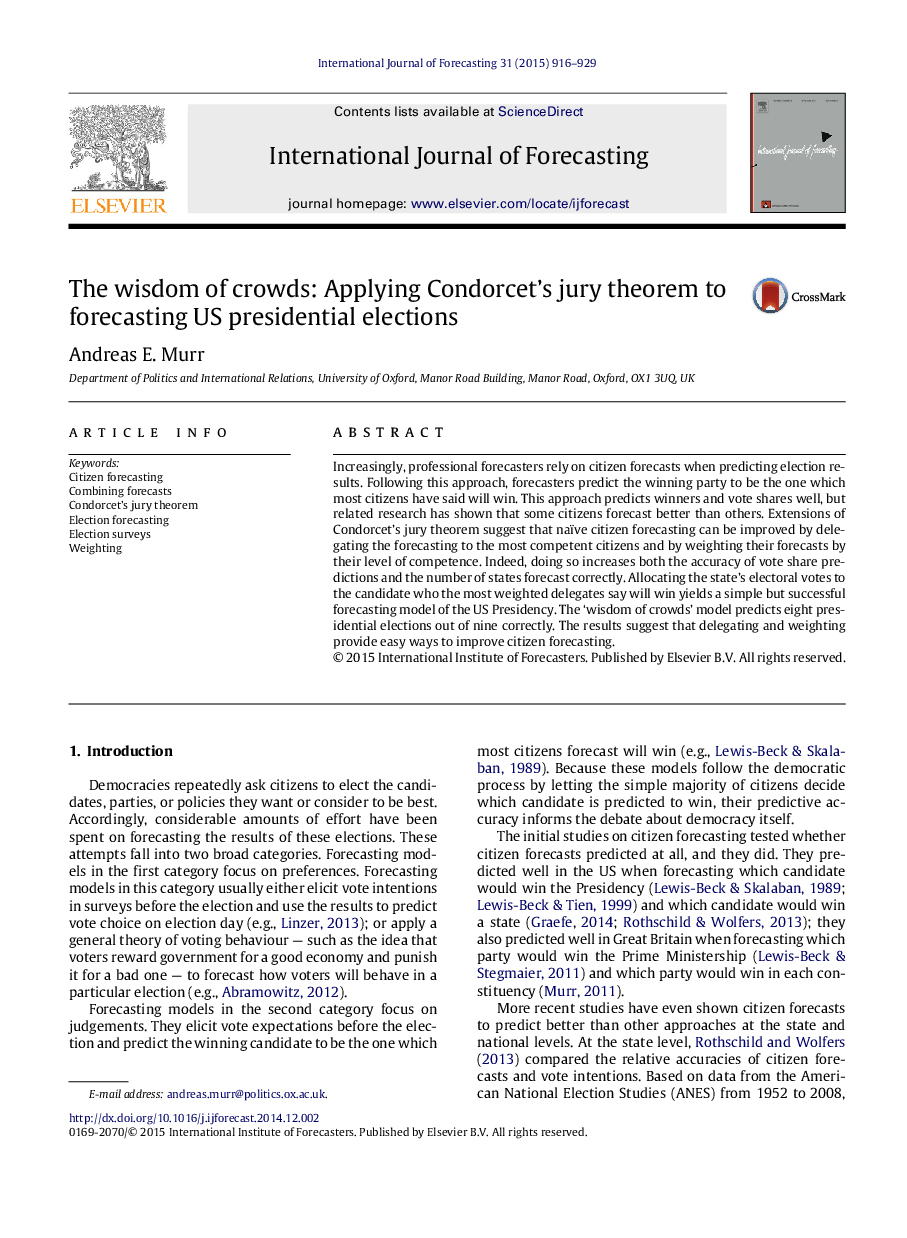| Article ID | Journal | Published Year | Pages | File Type |
|---|---|---|---|---|
| 7408410 | International Journal of Forecasting | 2015 | 14 Pages |
Abstract
Increasingly, professional forecasters rely on citizen forecasts when predicting election results. Following this approach, forecasters predict the winning party to be the one which most citizens have said will win. This approach predicts winners and vote shares well, but related research has shown that some citizens forecast better than others. Extensions of Condorcet's jury theorem suggest that naïve citizen forecasting can be improved by delegating the forecasting to the most competent citizens and by weighting their forecasts by their level of competence. Indeed, doing so increases both the accuracy of vote share predictions and the number of states forecast correctly. Allocating the state's electoral votes to the candidate who the most weighted delegates say will win yields a simple but successful forecasting model of the US Presidency. The 'wisdom of crowds' model predicts eight presidential elections out of nine correctly. The results suggest that delegating and weighting provide easy ways to improve citizen forecasting.
Related Topics
Social Sciences and Humanities
Business, Management and Accounting
Business and International Management
Authors
Andreas E. Murr,
